
We welcome National Accreditation Centre of Iran (NACI), Iran, as a Full Member of ILAC.
NACI joined ILAC as an Associate member on 21 June 2004. As NACI is a signatory to the APAC MRA for the accreditation of calibration and testing laboratories using ISO/IEC 17025, medical testing laboratories using ISO 15189, inspection bodies using ISO/IEC 17020 and proficiency testing providers using ISO/IEC 17043, NACI has also been granted signatory status to the ILAC MRA and therefore, Full membership of ILAC.
We welcome NACI as a Full Member and look forward to working with our NACI colleagues.
The full list of signatories to the ILAC MRA is available here.
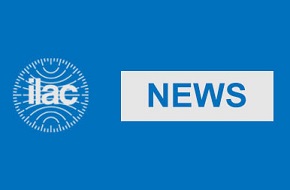
An article explaining the Walbrook AI Accord as presented at the April 2024 INetQI meeting:
A global initiative providing ways in which professionals and firms worldwide can respond to the ethical challenges of Artificial Intelligence
AI has the potential to affect society and individuals materially in both positive and negative ways. Without ethical guidelines and regulations in place, the misuse or mishandling of data can result in harm to individuals or groups. As AI becomes more advanced and widespread, there are growing concerns about issues such as bias, transparency, accountability, and safety.
The Walbrook AI Accord has launched an initiative to develop ethical AI standards. Initially the standards are embodied in course for professionals working with AI. The Initiative has now moved to promote standards for firm-wide certification. The approach is international rather than national, and promotes the use of existing ISO standards rather than the creation of new ones.

The Walbrook Accord serves as an invitation to collaborate on a voluntary and non-binding basis. It serves as a conduit to unify our collective endeavours and foster stronger connections over time. We are gratified by the support from ISO, IAF and other organisations. There is no set deadline for participation and we look forward to others joining. This initiative is inclusive and open to all.
The primary focus of the Accord is to facilitate three tangible outcomes:
• Advocating for the adoption of Quality Infrastructure for AI assurance;
• Developing assurance standards and methodologies; and
• Facilitating training and skill development for AI assurance professionals
We hope that INetQI and its members will endorse this initiative and help propel it to the next phase, ultimately establishing a robust assurance framework for the ethical deployment of AI. This will enable enterprises to demonstrate that their AI systems are safe, compliant, and aligned with societal values.
From the Lord mayor’s website:
“We are promoting the use of ISO/IEC 42001:2023 Artificial Intelligence – Management System by firms. For comparison, this is an organisational certification similar to ISO 9000, ISO 14000, etc. At the TIC Summit 2024, being held on 14 May in Brussels, representatives of more than 25 nations’ quality infrastructure bodies will be signing the Walbrook AI QI Accord.”
Matt Gantley’s responses to FAQs
Can you please clarify how ILAC members can endorse the initiative?
There is no limit – the Walbrook AI Accord is an invitation to collaborate
Are the individual ILAC members able to sign the Walbrook AI Accord?
Yes they can agree to support it individually. We would hope that ILAC can support it at an international level so that the initiatives and outcome of the Accord can be shared with all ILAC members. Especially for AI testing and training/skills development.
If so, what is the mechanism, i.e. who do they need to contact to progress their endorsement of the Walbrook AI Accord?
We haven’t agreed a process for lodging support – but for now if ILAC or any ILAC members email Matt Gantley or Hanane Taidi we will make sure they are included in all the communications and the first round of organisations expressing support.
You can read more of the 695th Lord Mayor’s Ethical AI Initiative here:
You can access the slide presentation from the recent INetQI meeting here: and the accompanying Agenda paper here:

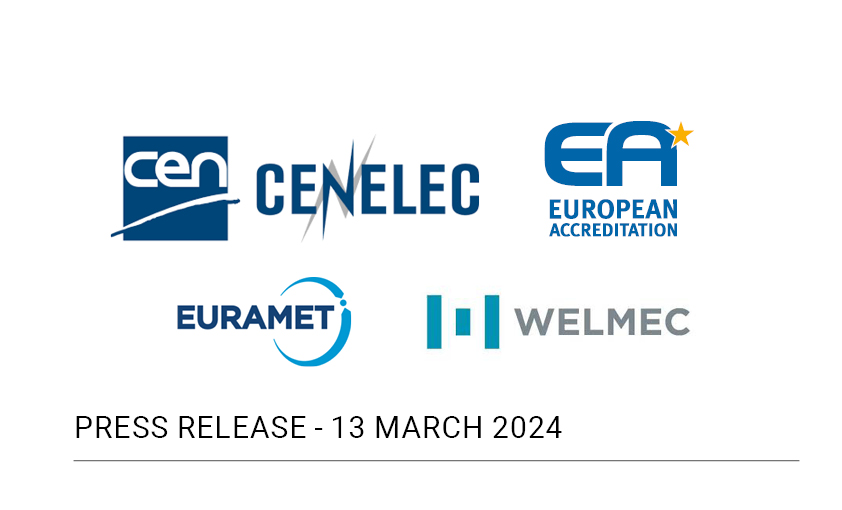
CEN, CENELEC, EA, EURAMET, and WELMEC join forces to reinforce and promote the European Quality Infrastructure
On 7 March, the five Regional Quality Infrastructure Organizations of Europe, the European Committee for Standardization (CEN), the European Committee for electrotechnical standardization (CENELEC), the European co-operation for Accreditation (EA), the Association of the National Metrology Institutes in Europe (EURAMET), and the European Cooperation in Legal Metrology (WELMEC) signed a Memorandum of Understanding to create the European Ql Network.
The Network Partners are organizations who represent, with a unique voice, their areas of activity.
Through the agreement, the Network Partners pledge to collaborate to strengthen the Quality Infrastructure in Europe, including:

Adoption of the EU Cybersecurity Certification Scheme on Common Criteria
The European Commission adopted on 31 January 2024 the implementing regulation concerning the EU Cybersecurity Certification Scheme on Common Criteria (EUCC). It is the first approved scheme under Regulation (EU) 2019/881 (Cybersecurity Act).
This regulation specifies the roles, rules, obligations, and structure of the European Common Criteria-based cybersecurity certification scheme in accordance with the European cybersecurity certification framework outlined in the Cybersecurity Act.
The implementing regulation refers to documents known as State-of-the-Art (SoA). There will be – inter alia – three SoA documents regarding:

Webinar on European Blockchain technology for the use in accreditation and certification
327 participants attended the webinar organized by EA, under the auspices of the European Commission, a webinar on European Blockchain technology for the use in accreditation and certification, on the 29th of February 2024.
Jose Manuel Panizo Plaza (European Commission, DG DIGIT) and Lia Potec (European Commission, DG MOVE) explored the role of the European Blockchain Services Infrastructure (EBSI) in the context of the European accreditation and certification ecosystem. The discussion centered on the prospective role of EBSI in facilitating the real-time dissemination of the accreditation status pertaining to Conformity Assessment Bodies (CABs). Furthermore, it addressed the verification of the certification status associated with a myriad of products and services certified within the European Union by said CABs
Annual Report 2023
The EA Annual Report 2023 has just been released.
You can read the interactive report here:
You can download the full report here
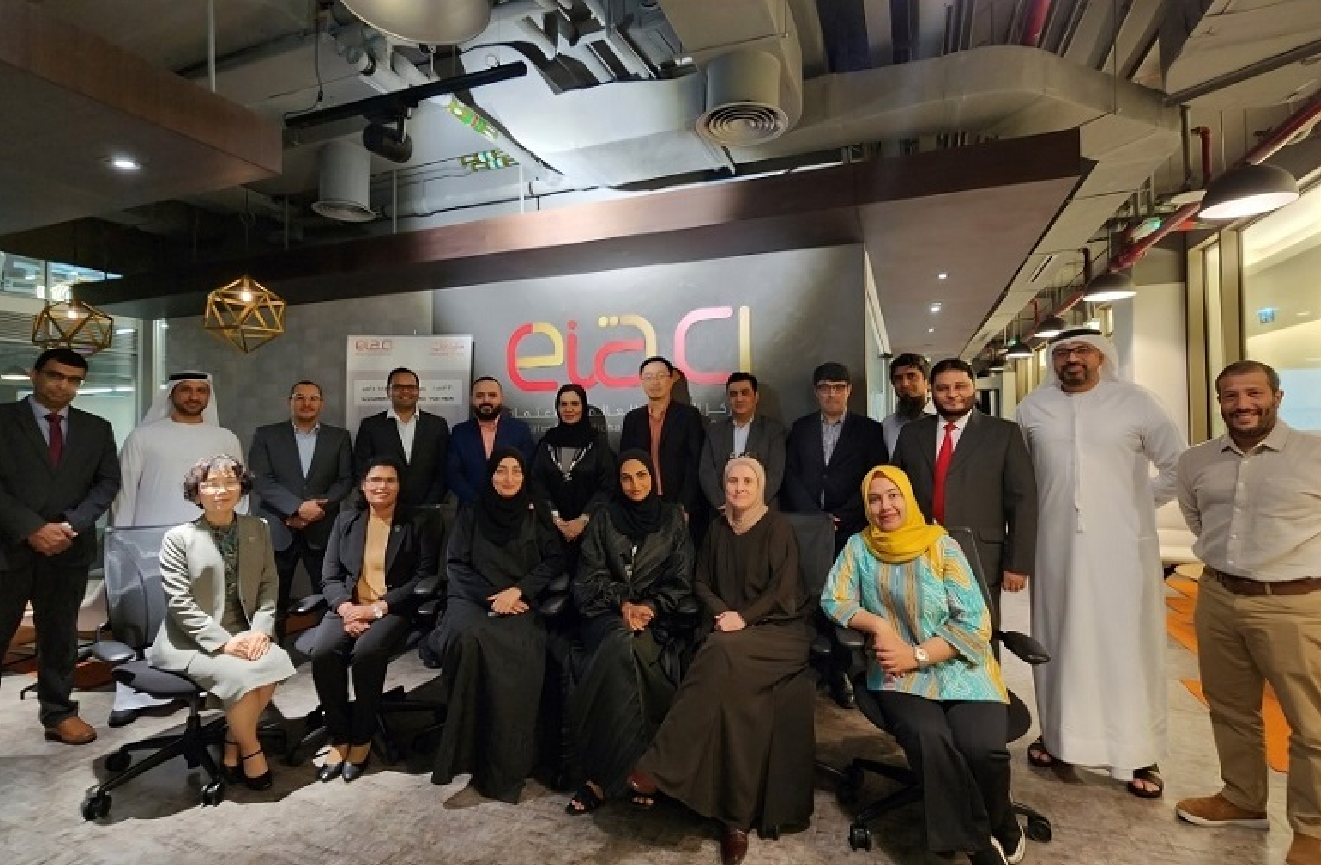
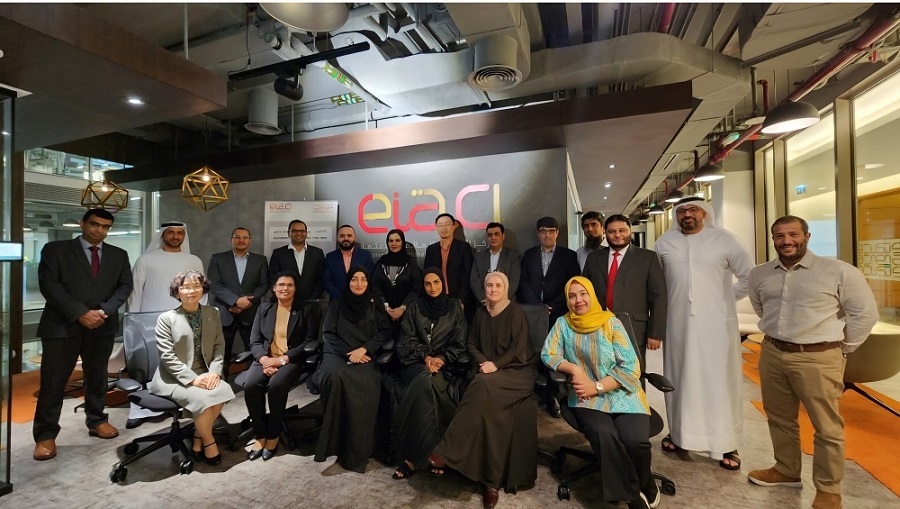
EIAC’s peer evaluation for existing and new scope
The peer evaluation of Emirates International Accreditation Centre (EIAC) was conducted on 20-24 November 2023. The peer evaluation was jointly conducted by the Asia Pacific Accreditation Cooperation (APAC) and Arab Accreditation Cooperation (ARAC). The eight-member peer evaluation team was comprised of peer evaluators from accreditation bodies of Thailand, Japan, Indonesia, India, Sri Lanka, Egypt, Tunisia, and USA.
The peer evaluation covered the existing scope ISO/IEC 17021-1 (for ISO 9001, ISO 14001, ISO 45001, ISO 22000 & ISO 27001), ISO/IEC 17065 and ISO/IEC 17024 and new scope of ISO/IEC 17043 Conformity Assessment-General requirements for the competence of proficiency testing providers.
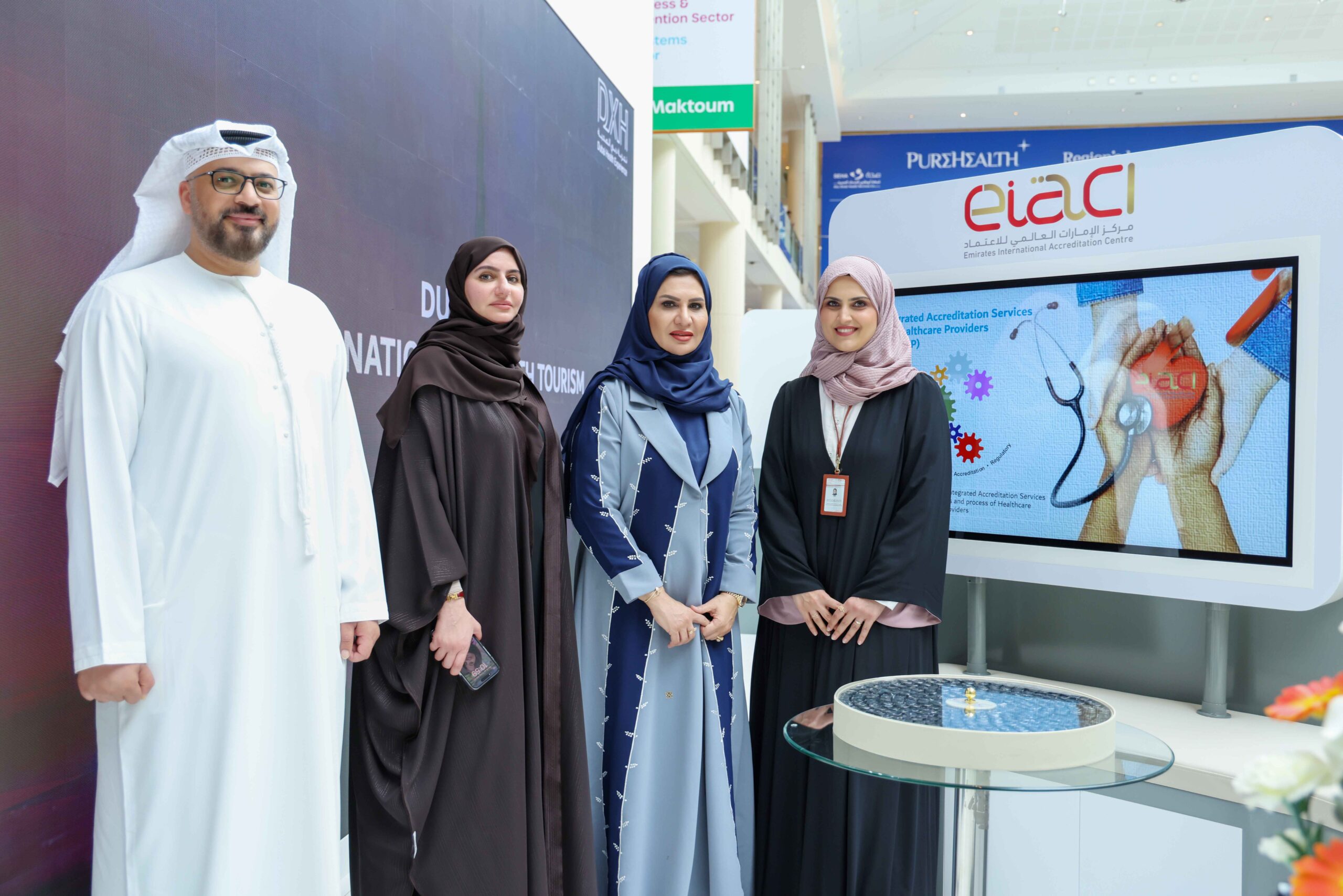
EIAC participated in Arab Health Exhibition & Congress 2024
The Emirates International Accreditation Centre (EIAC) participated in Arab Health Exhibition and Congress held on 29 January to 1st February 2024. Arab Health is largest exhibition and forum of medical field in the region. A large number of exhibitors of medical products including devices, pharmaceuticals, healthcare service providers and medical professionals attended the exhibition and discussion forums. The EIAC had a dedicated booth in the exhibitions. Large number of medical professionals from healthcare sector including medical laboratories visited the EIAC booth.
EIAC’s new scheme for persons certification bodies
The Emirates International Accreditation Centre (EIAC) has launched a new scheme for ISO/IEC 17024 persons’ certification bodies. The certification scheme is developed by the regulatory body, Health & Safety Department of Dubai Municipality. The aim of the scheme is to enhance the health and safety conditions at laborers’ accommodations. As per the scheme requirements, the accredited persons’ certification bodies will be responsible to provide certifications to competent “health & Safety Officers” for laborers’ accommodations. The laborers and other people living in those accommodations will be the beneficiary of the scheme.
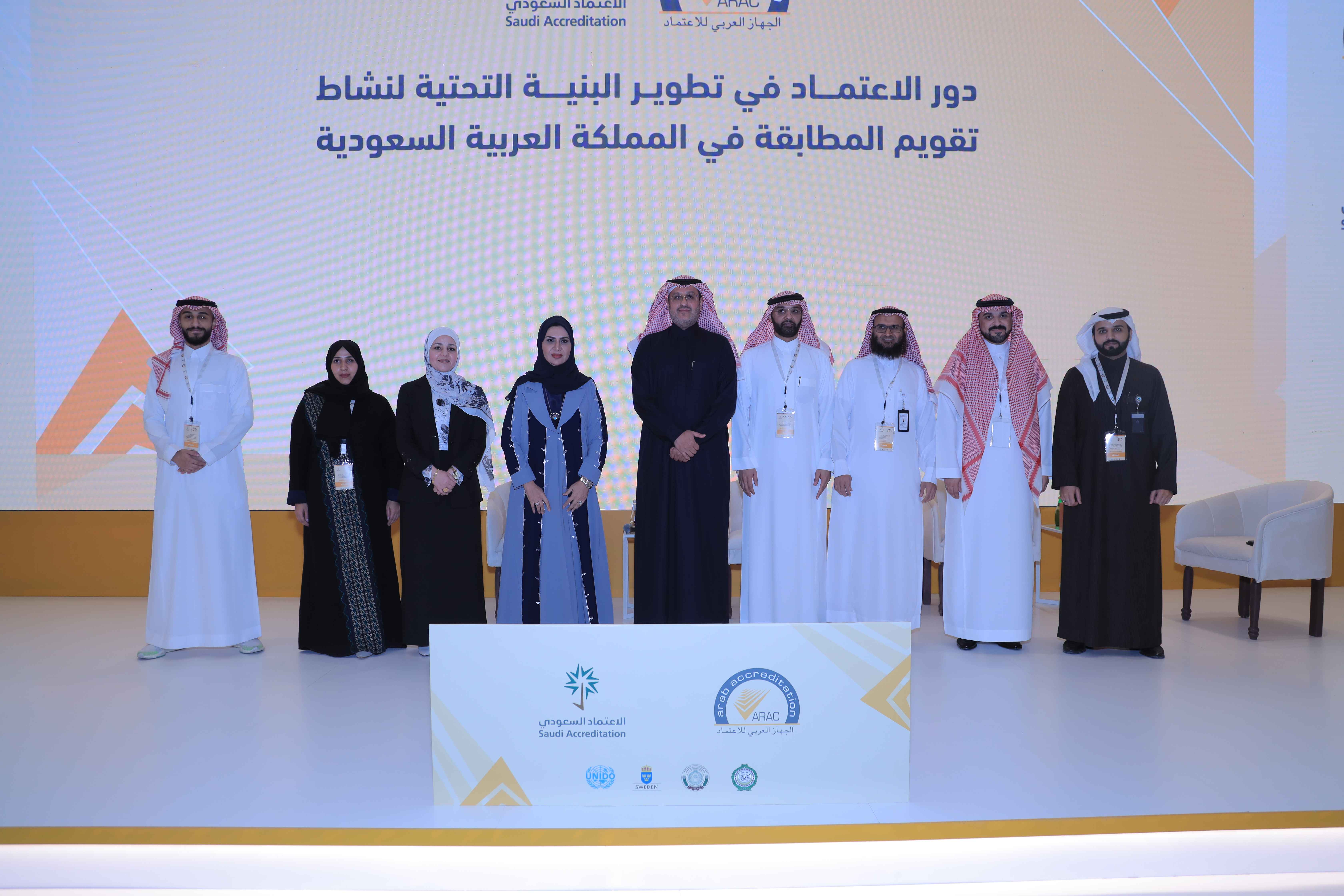
EIAC attended ARAC’s annual meetings in Riyadh, Saudi Arabia
The 11th annual meetings and general assembly of Arab Accreditation Cooperation (ARAC) were held from 5th to 14th December 2023 in Riyadh, Saudi Arabia. The meetings were hosted by the Saudi Accreditation Center (SAAC). EIAC delegation, headed by Ms. Amina Ahmed Ahmad, CEO attended the annual meetings.
EIAC conducted trainings for conformity assessment bodies
The Emirates International Accreditation Centre (EIAC) has conducted various training sessions over the past few months.
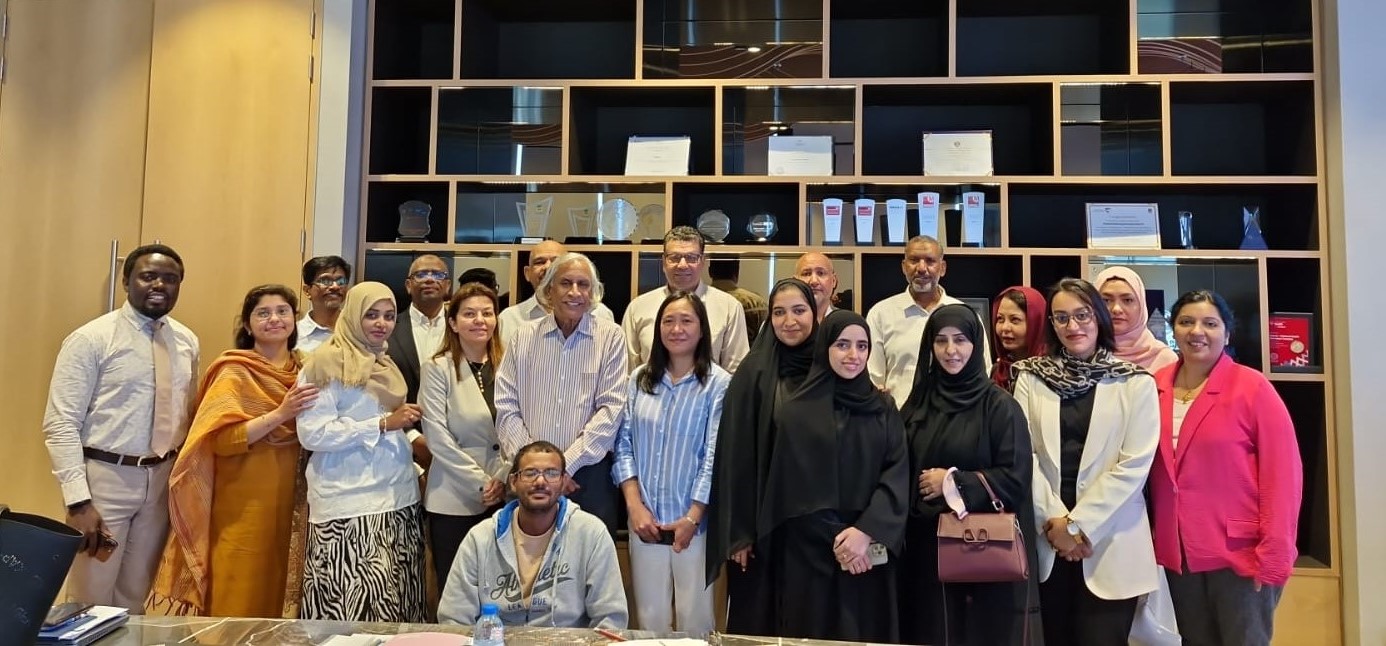
ISO 15189 training was conducted for medical laboratories and assessors and experts. Dr. Venkatesh Thuppil was the resource person. The training was conducted on 26-29 February 2024.
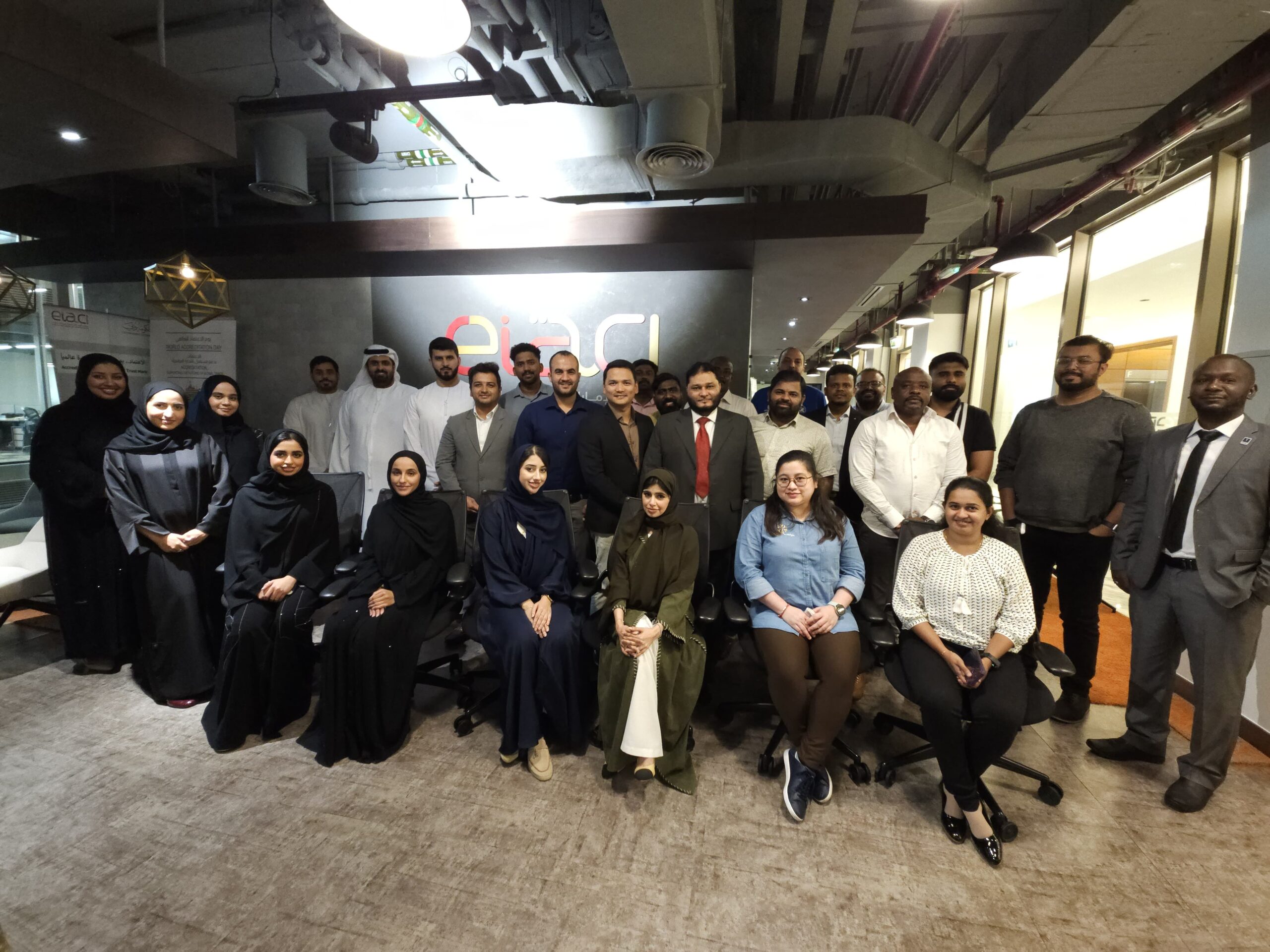
ISO/IEC 17024 training was conducted for persons certification bodies. The training also covered the conformity assessment requirements. The training was attended by delegates from various public and private entities including Dubai Police. Engr. Muhammad Shahid Rasool was the resource person for the training. The training was conducted on 21-22 February 2024.
Trainings of transition to new version of ISO 15189, Biobank and Halal standards were also conducted. Dr. Venkatesh Thuppil, Mr. Mohammed Abdel Motagaly and Mr. Erik Reisdorf were resource persons.
EIAC jointly hosts APAC annual meetings
The Emirates International Accreditation Centre (EIAC) along with Emirates National Accreditation System (ENAC) and GCC Accreditation Center (GAC) will jointly host the annual meetings of Asia Pacific Accreditation Cooperation (APAC) in Dubai, UAE on 13-18 July 2024. This is the first time that annual meetings and general assembly of APAC being held in the UAE and middle east region.

In the ever-evolving realm of healthcare, adherence to internationally recognized standards is of utmost importance to ensure quality, reliability, and credibility of laboratory services. The ISO 15189 standard, updated in December 2022, serves as a cornerstone for quality management and technical competence in medical laboratories.
The Mauritius Accreditation Service (MAURITAS) has, as of now, accredited 7 medical laboratories in accordance with ISO 15189:2012, “Medical Laboratories – Requirements for quality and competence’’, for a total of 148 parameters in the medical subfields of immunology, biochemistry, haematology and microbiology. Recognizing the importance of staying abreast of the updates to the standard, MAURITAS organised a training course from 05 to 08 February 2024, for its staff, assessors and other stakeholders.
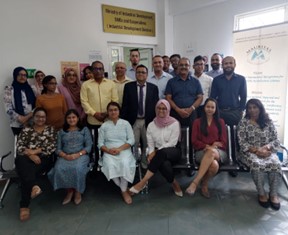 Dr Sambhu Chakraborty and the 21 participants
Dr Sambhu Chakraborty and the 21 participants
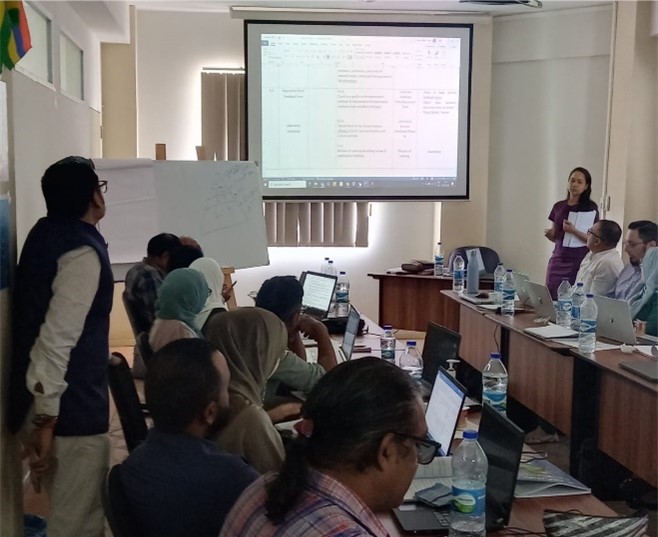
Participants during the training course
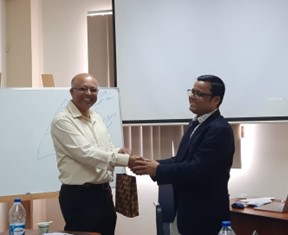
Mr Chankar Bheekhun (L), Accreditation Manager of MAURITAS
presenting a souvenir gift to Dr Sambhu Chakraborty (R)
The training course was facilitated by Dr. Sambhu Chakraborty from the Institute of Applied Quality Management & IAQM Consultants Pvt Ltd, India. With his expertise, Dr. Chakraborty guided the 21 participants through an intensive curriculum that covered various aspects of the ISO 15189:2022 standard and its practical implications. Participants had the opportunity to network with industry peers, forge valuable connections, and build a community committed to upholding standards of excellence in laboratory practice.
This training course has equipped professionals with the knowledge and skills to navigate the revised standard, and drive continuous improvement within the medical laboratory sector.

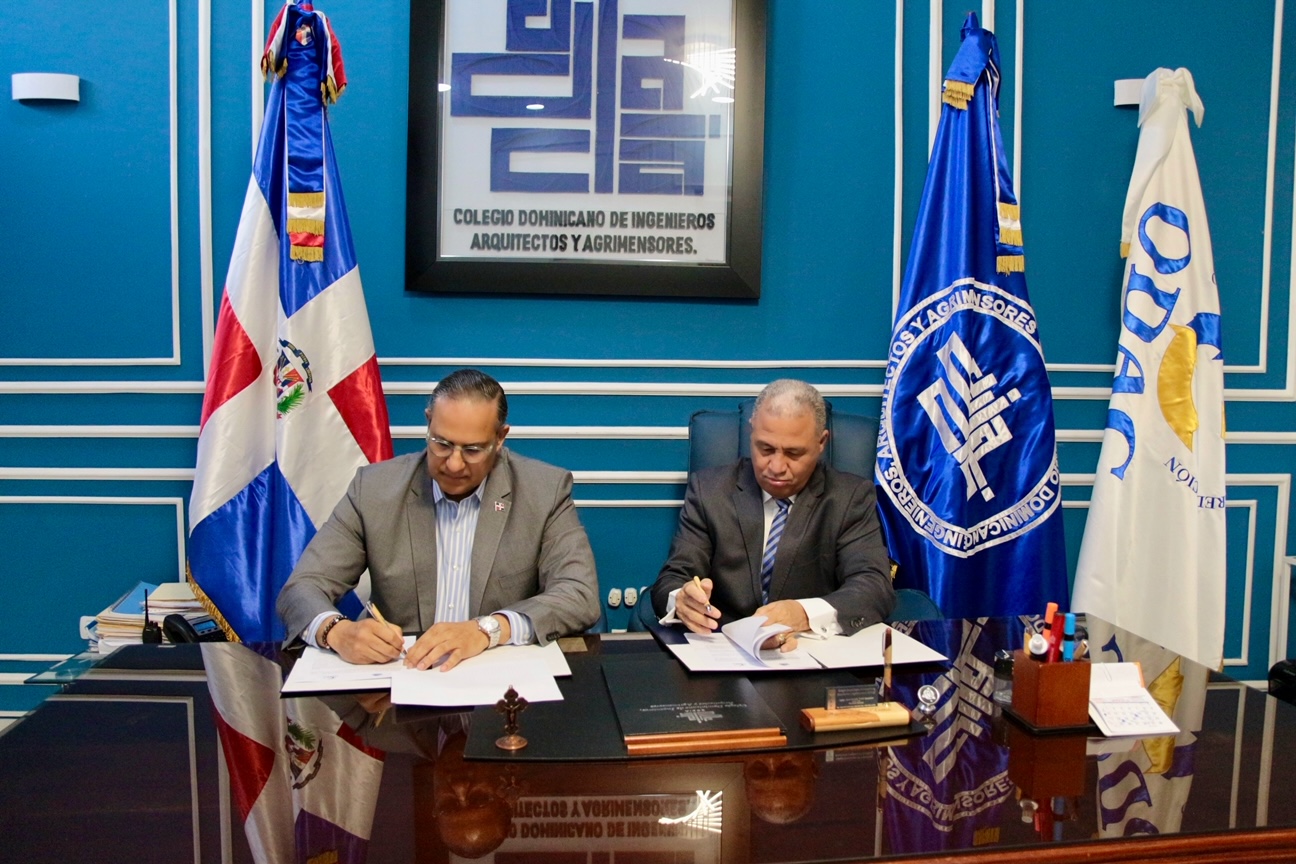
Santo Domingo, Dominican Republic
March 21st, 2024
The Dominican Accreditation Body (ODAC) and the Dominican College of Engineers, Architects, and Surveyors (CODIA) signed a collaboration agreement that will enable the management of projects to benefit the construction sector.
The agreement was signed by the director of ODAC, Ángel David Taveras Difo, and the president of CODIA, Juan Villar González, with the aim of contributing to the institutional strengthening of both entities.
Ángel David Taveras Difo valued the signing of the agreement, which will be a great contribution to strengthening the quality infrastructure and confidence, in the acquisition of products and services.
“The signing of this agreement reaffirms our commitment to quality and the generation of trust in the country’s construction sector, whose activities directly impact the growth of commerce, tourism, and consequently, the Dominican economy, and of course, the safety of the Dominicans,” said the official.
The agreement establishes that CODIA will prepare a regulatory resolution that establishes a proposal for the ODAC accreditation process for conformity assessment bodies.
In addition, it contemplates the joint development of training programs that facilitate the training of technical or managerial personnel of both entities, taking care of compliance with the impartiality requirements by international standards and criteria.
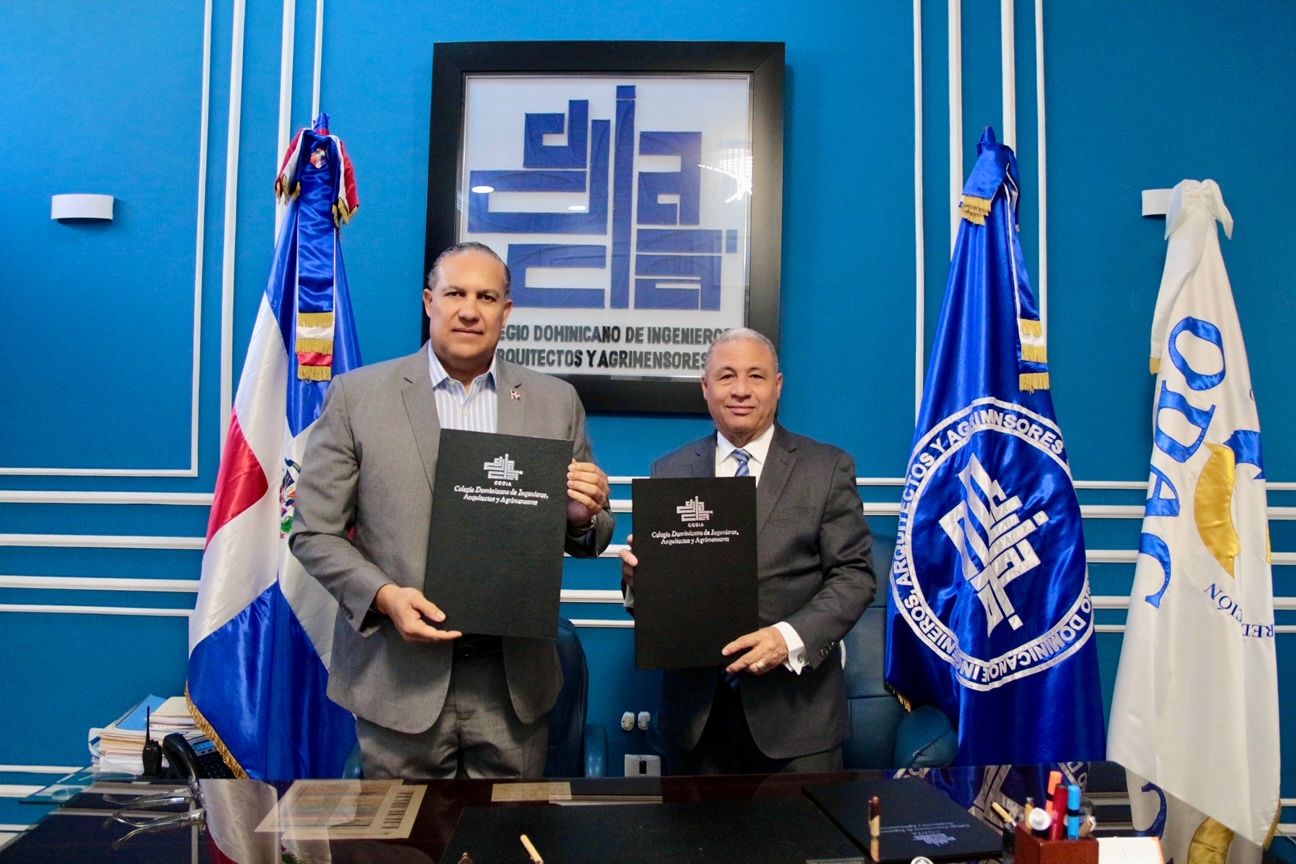
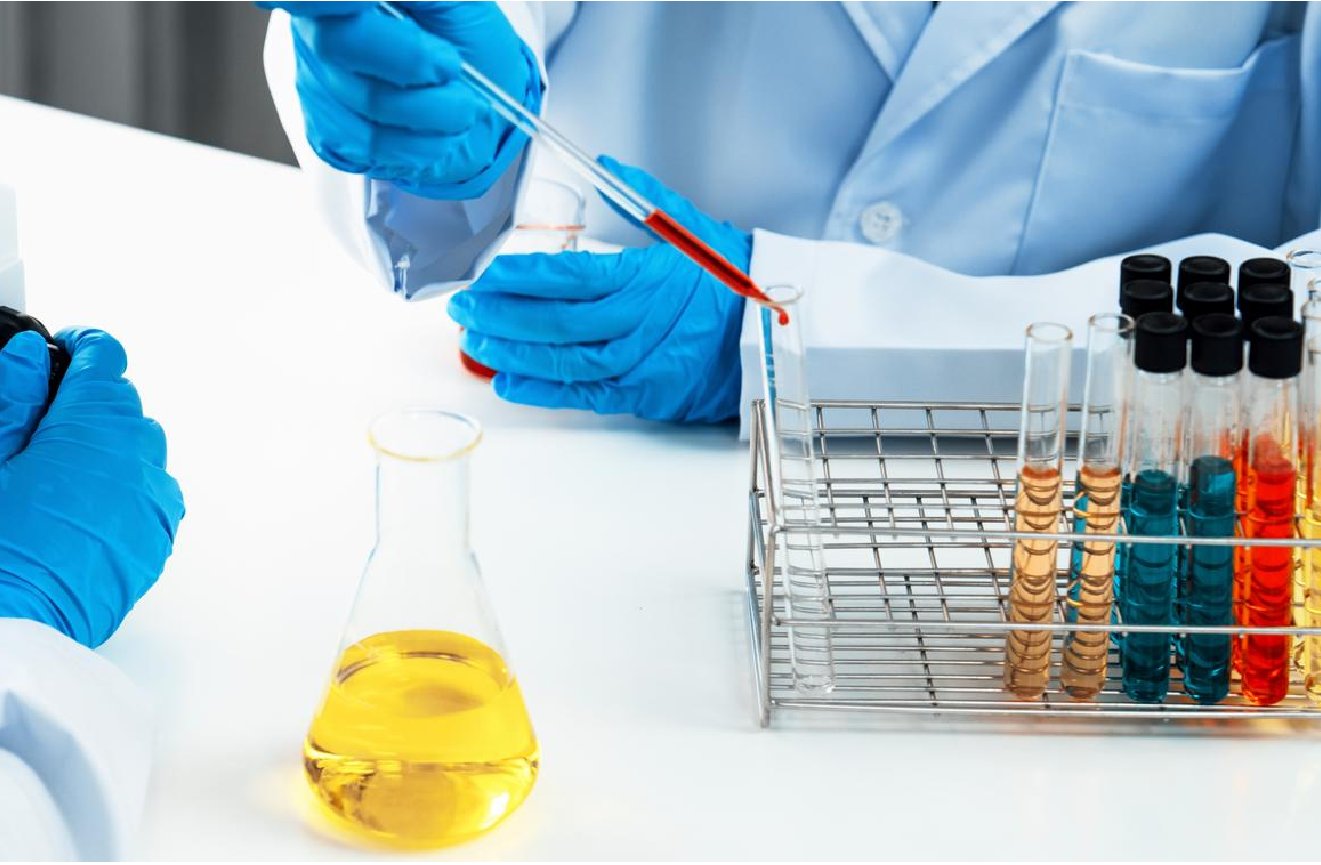
The Annual Conference of the Association of Pathologists, PathCon, and LabExpo 2023, held at The Lalit in New Delhi on 16th & 17th December 2023, emerged as a key nexus for over 300 medical professionals. Comprising physicians, pathologists, microbiologists, and biochemists committed to quality assurance and accreditation processes, PathCon served as a beacon of collaboration within the realm of pathology.
The gathering coordinated a variety of educational activities, with lectures spanning growing trends, diagnostic intricacies, and nuanced treatment paradigms. Case study presentations provided fertile ground for the development of diagnostic skills, while hands-on workshops augmented practical knowledge across histopathological nuances and molecular diagnostics. Poster presentations encouraged spirited discussions, enhancing and expanding upon the collective knowledge of those present.
PathCon fostered interdisciplinary interactions, cultivating a holistic ethos towards patient-centric care. Attendees seized networking opportunities, engaging with peers, mentors, and industry stalwarts to cultivate enduring relationships. Mentorship flourished, nurturing a legacy of excellence.
Professional development was was enhanced by PathCon’s Continuing Medical Education (CME) credits, ensuring ongoing knowledge cultivation and certification fulfilment. Participation elevated professional eminence, paving avenues for career progression and fostering innovation in patient care. PathCon stands as a stronghold of education, offering intellectual, networking, and professional developmental riches. Medical professionals continue to enrich their understanding, spearheading transformative changes in pathology and ultimately enhancing global healthcare excellence.

Jordanian Accreditation System – Accreditation Unit (JAS-AU) is proud to announce that it has expanded its services to include accreditation of Proficiency Testing Providers (PTP) according to the requirements of ISO/IEC 17043 standard.
JAS-AU has been working diligently to expand its services in the field of accreditation of PTP since 2022. This is due to the importance of proficiency testing results and their use as a tool to demonstrate conformity assessment bodies’ (CABs) competence, in order to improve the national quality infrastructure. It also recognises the increasing demand of local PTPs to overcome the obstacles that CABs (laboratories specifically) face when participating with providers abroad. For example, shipping costs have recently increased, and increasing accreditation areas which it is difficult to cover by PTP, and the restrictions by the customs agency in all around countries.
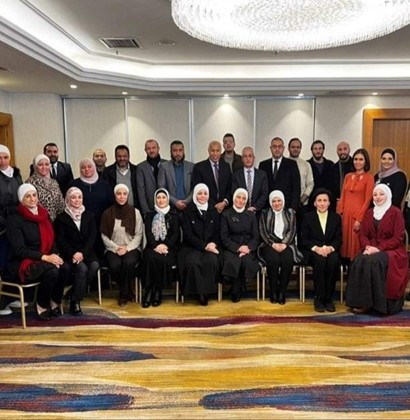
Technical support for this project was provided by UNIDO, and an accreditation expert was involved in the project. Several activities took place according to a predefined plan as follows:
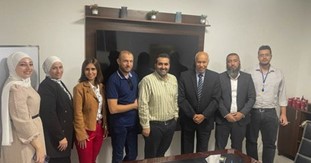

The desired goal of the visits, which was to evaluate the competence of JAS-AU and its assessment teams was achieved, as the technical expert expressed his satisfaction and praised the competence of the assessment team members, the extent of their commitment, and their ability to assess the requirements.
Consequently, JAS-AU has officially launched a new service to accredit PTP according to ISO/IEC 17043 and ILAC policies.
JAS-AU will continue to build on this achievement and prepare to apply for extending its signatory status of the Arab Accreditation Cooperation MLA (ARAC MLA) to cover the scope of accreditation of Proficiency Testing Providers. This will ultimately lead to the extension of its ILAC MRA signatory status.

The QAI Centre for international Accreditation (QAI CIA), a fairly young organisation, started its accreditation activities for Conformity Assessment Bodies (CABs) in 2017 with the following accreditation programmes:
2017
• Accreditation of Medical Testing Laboratories as per ISO 15189
2018
• Accreditation of Testing laboratories as per ISO/ IEC 17025
2021
• Biobanking Accreditation as per ISO 20387 (For the First time in India)
2022
• Accreditation of Calibration laboratories as per ISO/ IEC 17025
2023
• Accreditation of Proficiency Testing Providers as per ISO 17043
• Accreditation of Reference Material Producers as per ISO 17034
• Accreditation of Inspection Bodies as per ISO 17020
We are happy to announce that QAI CIA achieved international recognition by joining the APAC MRA for Testing (ISO/IEC 17025) and Medical Testing (ISO 15189) on 31 October 2022 and the ILAC MRA for Testing (ISO/IEC 17025) and Medical Testing (ISO 15189) on 10 December 2022. This makes us the second AB in India to achieve membership of the ILAC MRA. We intend to add more accreditation programmes to the ILAC MRA as we progress.
This recognition has helped us in expanding and promoting our business, and accepting a greater number of applications for accreditation.
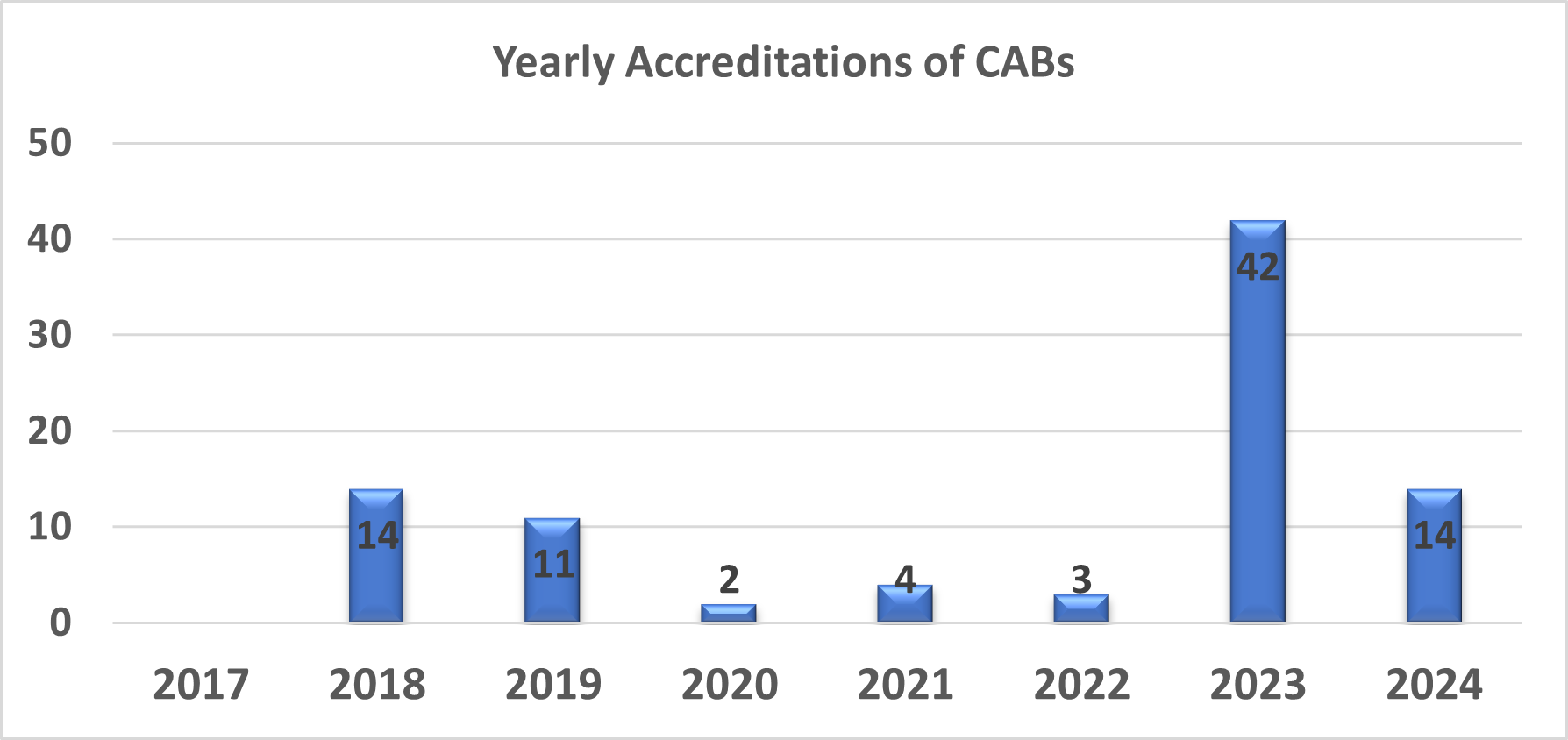
We are also pleased to announce that QAI CIA is now present in Asia, Africa and the Middle, East as an accreditation partner. We are motivated to excel in supporting countries that may not have their own Accreditation Body and / or a specific accreditation programme.
We are committed to hold to our Vision and Values by providing a credible accreditation mechanism. We are certainly would like to contribute towards our national government’s agenda of Viksit Bharat (Developed Bharat) in the conformity assessment ecosystem and do our bit to take Bharat (India) to the 1st World Ranking in Quality and Accreditation Infrastructure.
Further, we are open for bilateral collaboration to learn, share and support these shared goals with organisations in different countries.
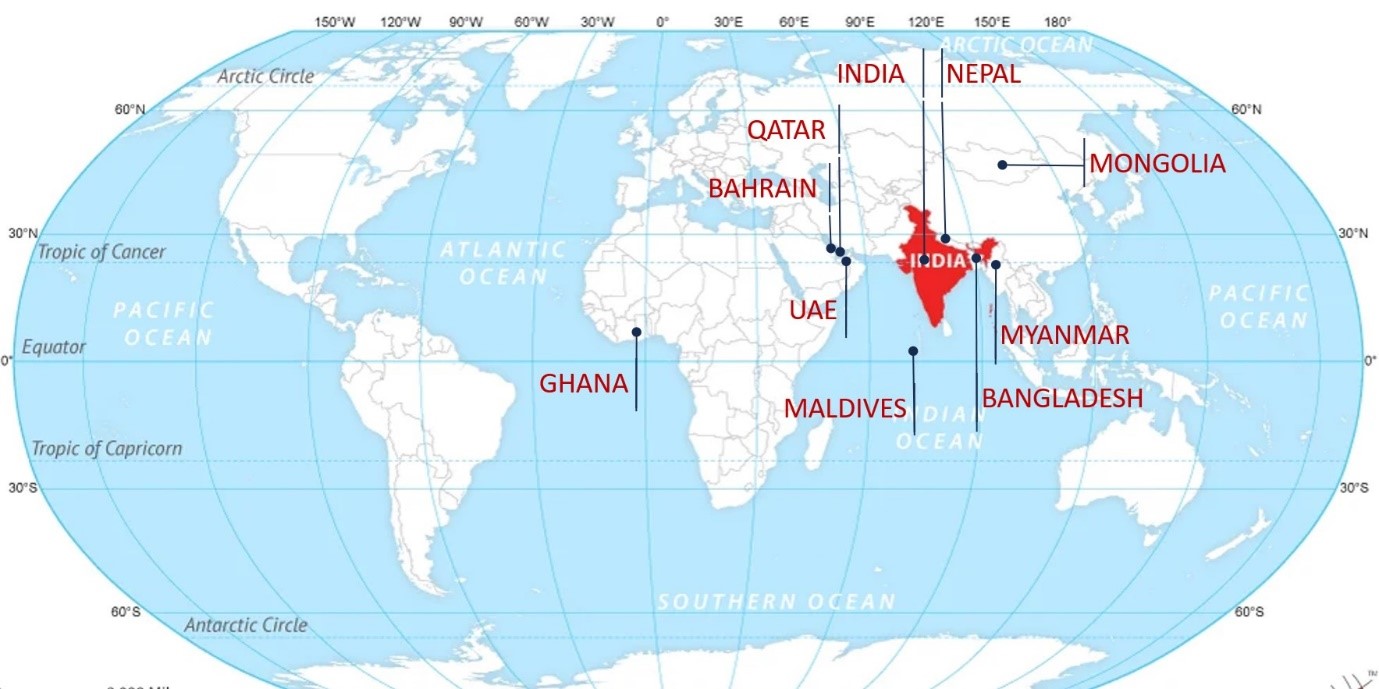

The Accreditation Education Research and Scientific Services Center Pvt.Ltd (AERSSC) held a Stakeholder Conclave on 9 March 2024. For an update on the Conclave click on the following link.
AERSSC Article